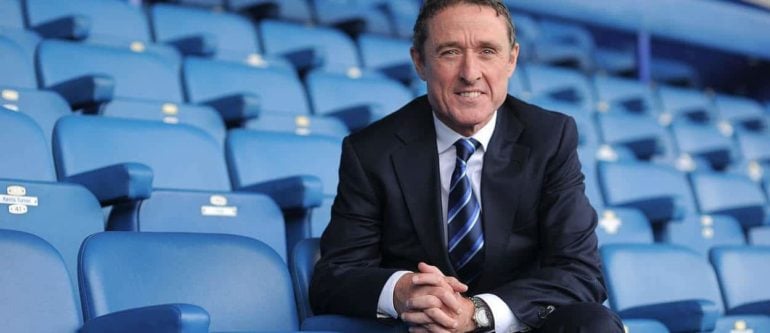Everton achieved record turnover in 2014/15. Despite a decrease in broadcast income from £84.8m in 2013/14 to £81.7m, total turnover increased from £120.5m to £125.6m.
The Club’s 11th place finish in the Premier League, compared to fifth in the previous season, partially offset by an increase in live TV selections (17 vs 16 in 2013/14), resulted in a £3.1m reduction in broadcast revenue.
The long-term support of key partners Chang and Kitbag and a new kit partner deal with Umbro were largely responsible for the Club’s sponsorship, advertising and merchandising income rising from £8.4m to £10.4m, while participation in the UEFA Europa League also contributed to an increase in revenue from other commercial activities, £10.5m in 2013/14 to £15.6m.
Average league attendance at Goodison soared to 38,406, the highest recorded total since the 2003/04 season, with almost 28,000 season ticket holders – 4,000 more than in 2013/14. Gate receipts grew by £1.1m to £17.9m, with 12 of 19 Premier League games sold out and additional home matches due to the Club’s progression to the Round of 16 in the UEFA Europa League. The Club’s commitment to affordable pricing and making football at Goodison accessible to young fans was emphasised by the continuation of the £95 season ticket for junior school children.
The overall increase in turnover helped to sustain continued investment in the playing squad. In Roberto Martinez’s second season as Everton manager, the Club record signing Romelu Lukaku joined Gareth Barry, Mo Besic, Brendan Galloway and loanees Christian Atsu and Aaron Lennon in a strengthened Toffees squad. The Club also agreed a new deal with the manager to the end of the 2018/19 season.
Everton Chairman Bill Kenwright said: “There is no more hard-working a manager in the land than the manager we have, no manager more determined to bring success to his Football Club, to bring silverware to his Football Club, to build a winning mentality and a winning team. Roberto’s mentality is resolute and relentless. This is what makes him such a remarkable man and a man I believe will definitely take the Club forward.”
As a result of the continued commitment to the first team squad, total staff costs rose by £8.2m to £77.5m. However, whilst wages as a percentage of turnover including outsourced catering and retail, increased from 55% in 2013/14 to 58% in 2014/15, the ratio remains significantly below the Club’s previous 5-year average of 65% and in line with the Premier League average reported for 2013/14 of 58%.
As a result of the increase in staff costs, operating profit before player trading decreased to £16.0m (vs £23.7m in 2013/2014) but was still considered significant. In the last two financial years, the Club has reported cumulative operating profits before player trading of £39.7m, some £23m more than the aggregate of the previous 10 years to 2012/13.
Interest charges, arising principally from the servicing of the securitised debt and bank overdraft, decreased to £3.8m due to a reduction in interest rates. Amortisation of player contracts increased to £19.5m from £18.6m in 2013/2014 and profit on sale of players (the amount received over and above the amortised value of the original fee) decreased from £28.2m (which included the sale of Marouane Fellaini to Manchester United) to £3.3m.
Incorporating the annual net interest charge of £3.8m, the results for the year show a post-tax loss of £4.1m (vs £28.2m profit in 2013/14).
The net book value of intangible assets (which includes first team players, the manager and Academy players for whom the Club has paid a fee) grew from £34.2m to £52.5m but this does not reflect the value of the playing squad, attributing little value in respect of homegrown players such as Ross Barkley and fellow international players including John Stones, Seamus Coleman, Phil Jagielka, James McCarthy and Leighton Baines.
Everton Chief Executive Robert Elstone said: “Our financial performance, like so many Premier League clubs, was underpinned by the second year of a TV deal that beat all expectations, but also by increases in matchday and commercial revenues. We also continue to work hard managing and controlling our cost base and remain determined to ensure investment and spending is effective and delivers returns.
“Beyond the Premier League table, probably the most significant barometer of success is attendances and 2014/15 broke all recent records with our highest season ticket total for at least 10 years, the lowest season ticket non-renewal rate, 12 full houses and an average attendance in excess of 38,000 for the first time since 2004.
“As reported year-in, year-out, our revenues continue to be spent on sustaining a great Academy, the best possible coaching, scouting, performance and medical teams and, of course, a first team squad that can compete for a place in Europe. That strategy remains central to everything we do.”


